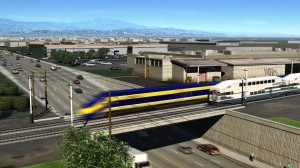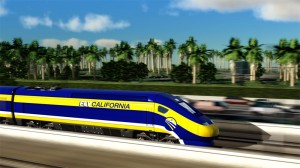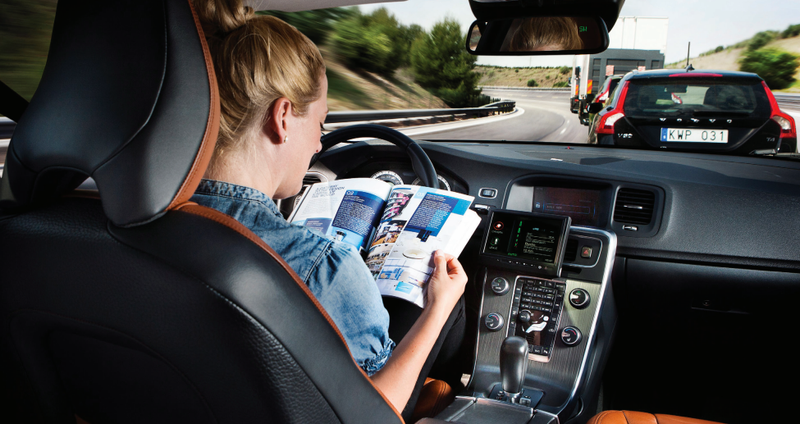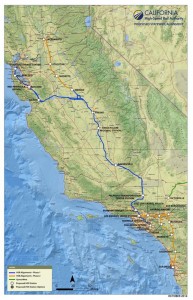Is there a dangerous downside to growing up with smart phones and social media? Today’s teens are glued to their phones and virtually connected to each other like never before. And yet the rates of teen depression and loneliness are skyrocketing.
Join me tonight at 7pm on City Visions to discuss whether smartphones are destroying a generation of kids. My guests include:
- Sue Porter, PhD, Dean of Students at The Bay School of San Francisco
- Jean Twenge, PhD, Professor of Psychology at San Diego State University and author of iGen: Why Today’s Super Connected Kids Are Growing Up Less Rebellious, More Tolerant, Less Happy – and Completely Unprepared for Adulthood.
- Colby Zintl, Vice President of External Affairs at Common Sense
Listeners in the San Francisco Bay Area can tune in at 91.7 FM, or you can stream it on-line. Please call or email with your questions in the meantime or during the live show. Hope you can tune in!
Residents of the San Francisco Bay Area may pride themselves for being part of one the most diverse cities in the nation. But both data and anecdotal evidence indicate that the area’s extraordinary economic growth in recent years has led to growing inequality and racial segregation. With rents and home prices soaring, low-income and minority populations are being pushed out from job-rich urban centers.
What is the social, economic and environmental impact of low-wage earners living further and further outside the cities where they work? Can housing policies reverse these trends? And what does this mean for a region that prides itself on its identity as a bastion of progressive politics?
To hear a discussion about these issues and more, tune in tonight at 7pm to City Visions on KALW, local public radio. Guests include:
- Miriam Chion, lecturer at U.C. Berkeley in the Department of City and Regional Planning.
- Chris Schildt, Senior Associate at PolicyLink.
- Tony Roshan Samara, Program Director of Land Use and Housing at Urban Habitat.
Tune in or stream it live on KALW 91.7 FM. And please call, email or tweet us with your questions.
Should San Francisco provide an indoor, medically supervised facility where drug users can safely and legally inject?
Last month, the board of supervisors convened a special task force to examine this issue. Harm reduction advocates and local public health officials support it, but many members of the community are concerned about what it will mean for the city’s neighborhoods and for those who would utilize the services.
I’ll be moderating a discussion on the pros and cons of safe injection facilities in San Francisco tonight on City Visions at 7pm. Panelists include:
- Alex Kral, Director of the Behavioral and Urban Health Program, RTI International
- Gary McCoy, HIV/AIDS activist and Recovery advocate
- Laura Thomas, Deputy State Director of the Drug Policy Alliance
City Visions airs on local public radio KALW 91.7 FM in the San Francisco Bay Area and via our website. Call in, comment, or email with your questions!
America’s trust in the media is at an all-time low. As the media environment fragments and political leaders, including the president, routinely disparage the press, what are the consequences of a weakened media for our democracy? What can the press do to restore trust? And how should Americans evaluate the news going forward, to stay informed and engaged in our political process?
Join me tonight at 7pm on City Visions, KALW 91.7 FM for a discussion on this issue. My guests will include:
- Sally Lehrman, director of the Journalism Ethics Program and the Trust Project at Santa Clara University
- Jeffrey MacKie-Mason, university librarian and professor at the School of Information at University of California, Berkeley
- Janine Zacharia, Carlos Kelly McClatchy Visiting Lecturer in the Department of Communications at Stanford University, former Jerusalem Bureau Chief and Middle East Correspondent for the Washington Post, and chief diplomatic correspondent for Bloomberg News in Washington
And if you can’t access the airwaves, anyone with wifi can stream the broadcast here. Please email or call in with your questions for the show!
Trump’s presidency could have significant consequences for the Bay Area and California at large. Tune in tonight at 7pm on City Visions, KALW 91.7 FM as I host a discussion on how Trump’s actions in his first 100 days could impact our state’s residents, on issues including the environment, immigration, health care, and more.
My guests will include:
- David Campos, attorney and member of the San Francisco Board of Supervisor’s since 2008 representing District 9
- Erwin Chemerinsky, Dean and Professor of Law at the University of California, Irvine School of Law, with a join appointment in Political Science
- Jared Huffman, Democratic Congressman since 2013 representing California’s second district
For those outside of the Bay Area, you can stream the broadcast here. Hope you can tune in!
Last’s week electoral college win, combined with retention of congress, positions the Republican Party to have a hold on all branches of the federal government for the first time since 1928. Yet here in California, the story is totally different. The election served to further weaken the state Republican party, as well as deliver wins on a number of progressive causes.
Tonight on City Visions on KALW Radio, 91.7 FM in San Francisco, I’ll hosting a discussion on the future of the Republican Party in California. Joining me will be:
- Jimmy Camp, former Director of Operations of the Republican Party of California
- Harmeet Dhillon, Republican National Committeewoman
- Markos Moulitsas, Founder and Publisher of Daily Kos
Will explore how the party will try to regain its standing in the state, what the future will hold in a post-Trump world, and how the state’s political prospects could affect the national scene.
For those not in the Bay Area, you can live stream the show via the KALW website. Hope you can tune in!
 My interview on Monday night’s City Visions program on KALW radio with Dan Richard, chair of the California High Speed Rail Authority, covered a lot of ground on the status and future of the proposed system. You can listen to the audio here. Some key takeaways from my perspective:
My interview on Monday night’s City Visions program on KALW radio with Dan Richard, chair of the California High Speed Rail Authority, covered a lot of ground on the status and future of the proposed system. You can listen to the audio here. Some key takeaways from my perspective:
- A federal infrastructure spending bill next year with a new president will be critical to shoring up the existing system’s finances and allowing it to get fully built out by 2029. The current federal contribution is historically meager, compared to how much the state is contributing in tax dollars.
- The Authority will need the San Jose to Fresno section to get up and running as soon as possible to demonstrate a revenue-making, operable segment, which will lay the political foundation for more support for the system.
- The Authority and other local leaders are going to need more tools to ensure that the system does not lead to more sprawl around the stations and instead encourages more station-oriented development. Those tools could involve urban growth boundaries coupled with more funding for infill areas.
This will be a very long-term project for the state, but it’s the first high speed rail system under construction in the United States. While a fully built out train is decades away, perhaps with a big federal push next year we’ll see the first section operating soon between Silicon Valley and Fresno. That development would be transformative for the Central Valley. Overall, it’s a vital infrastructure project for the state’s residents to keep tabs on.
 California’s high speed rail system has been moving at a low speed since voters approved a bond issue to launch it in 2008. That ballot measure authorized a bullet train from San Francisco to Los Angeles and eventually Anaheim, at speeds of 220 miles per hour and stops in Central Valley cities like Fresno and Bakersfield. The total trip time would be no more than 2 hours and 40 minutes between the two big cities, at fares less than airplane travel.
California’s high speed rail system has been moving at a low speed since voters approved a bond issue to launch it in 2008. That ballot measure authorized a bullet train from San Francisco to Los Angeles and eventually Anaheim, at speeds of 220 miles per hour and stops in Central Valley cities like Fresno and Bakersfield. The total trip time would be no more than 2 hours and 40 minutes between the two big cities, at fares less than airplane travel.
The rationale for the system is that it will provide a cheaper way to move a growing population around the state than expanding airports and highways. It will connect the relatively weak economies of the Central Valley with the prosperous coastal cities, providing an economic boost, all while enabling low-carbon transportation and promoting car-free lifestyles for communities connected to the system.
But since 2008, legal and political battles have slowed the system’s progress, as everyone from farmers in the Central Valley, wealthy homeowners in the San Francisco peninsula, and even equestrians in the hills above Burbank have fought to push the route away from their land. It’s local NIMBY politics on a statewide scale.
These legal and political challenges have in turn created funding headaches for the system. The original price tag of $40 billion ballooned to a projected $118 billion, before a revised business plan reduced it to an estimated $62 billion, as described in the 2016 business plan. Of that amount, the 2008 bond issues provides almost $10 billion, federal funds provide another $3.3 billion, and cap-and-trade funds may provide another few billion. System backers hope the rest come from private sources, but so far none have stepped up.
With strong support from the governor, the state was able to dedicate 25% of cap-and-trade auction proceeds to high speed rail construction. But the auction faces legal uncertainty going forward, due to a pending court case brought by the California Chamber of Commerce. An adverse verdict could mean that the money will halt either immediately or post 2020.
Meanwhile, the federal government has been unusually stingy with this infrastructure project. After Republicans took over Congress in the 2010 midterms, the federal dollars dried up, leaving the state to fund the project on its own. Only the 2009 stimulus provided some federal money for the train, but nowhere close to a match for the state contribution. By comparison, the federal government typically contributes 50% of the money for urban rail systems and between 90 and 100% for highways.
The funding picture has now affected the route design. The initial connections were going to be from the Central Valley to somewhere north of Los Angeles, hooking into the commuter Metrolink train to deliver passengers to Union Station in downtown Los Angeles. Now there’s not enough money to get the train through the Tehachapi mountains that separate Southern California from the Central Valley. So the initial connection will now go to San Jose from the Central Valley, with a link to the commuter Caltrain to get passengers to San Francisco. High speed rail bond money will then pay for upgrades to Caltrain and Metrolink, to prepare those systems for eventual high speed rail connections.
So with all the controversy and politics for this important project, I look forward to interviewing California High Speed Rail Authority chair Dan Richard tonight on City Visions, on NPR affiliate 91.7 FM KALW radio in San Francisco, from 7-8pm. For those out of the area, you can stream it or listen to the archived broadcast after the show here. I’ll ask Dan for more information on the funding, politics, and current construction status. And listeners are free to call in or email with questions. Hope you can tune in and ask your questions about the system’s future!
Last night on City Visions on KALW radio we had a feisty discussion about direct democracy in California, with special attention on San Francisco’s crowded ballot. City voters there are faced with 25 initiatives this year, many put on due to a quirk in the city charter that allows supervisors to place them as leverage over political opponents.
Joining me for the discussion were:
- Bruce Cain, Professor of Political Science at Stanford University;
- Joe Eskenazi, Senior Editor at San Francisco Magazine; and
- Quentin L. Kopp, Member of the San Francisco Ethics Commission, retired California Superior Court judge, former San Francisco Supervisor, and prior California State Senator.
Bottom line: the advent of direct democracy has proven popular with the voters in concept and is tough to reform, even if voters don’t like having so many choices to make. However, we discussed possible reform efforts related to paid citizen signature gathering and shorter ballot.
You can listen to the discussion here. And next Monday, I’ll be hosting a one-on-one discussion with California High Speed Rail Authority chair Dan Richard, so mark your calendars now!
Driverless cars, or autonomous vehicles, have been making headlines recently, as companies as diverse as Google, Tesla, GM, Lyft, and Uber are making big bets. These companies foresee a future with vehicles that can drive themselves, leaving the driver to do anything but drive. The autonomous capability could also allow people to summon vehicles that they “rent” like a Netflix subscription, instead of owning and parking for most the of the day.
 We already see the technology introduced in Teslas and other vehicles, starting with smaller features like self-parking and automatic braking.
We already see the technology introduced in Teslas and other vehicles, starting with smaller features like self-parking and automatic braking.
But as we move to a world of full autonomy, the future could either be very bright or very dark. On the bright side, a reduction in car ownership could lead to freed space for more housing and pedestrian spacing. Car accidents could be a thing of the past, while vehicles could be “right-sized” for each trip and more efficient and lighter without the need for safety features.
On the dark side, autonomy could lead to a significant uptick in driving miles, as well as more sprawl and congestion. This could lead to more pollution and loss of open space.
To discuss these issues, I’ll be hosting City Visions tonight at 7pm on KALW 91.7 FM in the San Francisco Bay Area. Joining me will be:
- Dorothy Glancy, J.D., Professor of Law at Santa Clara University
- Gerry Tierney, Associate Principal at Perkins + Will
- Susan Shaheen, Ph.D., Co-Director of the Transportation Sustainability Research Center and Adjunct Professor in Civil and Environmental Engineering at the University of California, Berkeley
For those not in the Bay Area, you can tune in via live streaming. Hope you can join, and feel free to call in or email with your comments for us to address on the air.
UPDATE: audio is now posted here.



